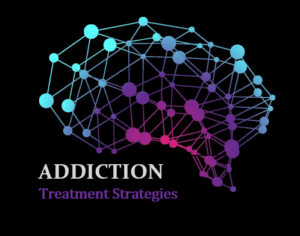Working Your Way Back to Health
Ever feel devoid of energy? Tired, rundown, depressed to the point where it feels something is working against you internally even though you are going through addiction treatment? This may be due to a nutrient or mineral deficiency in your body caused by prolonged alcohol or drug use.
Not only does alcohol and drugs impair cognitive functioning and leave you with the uncomfortable physical symptoms of withdrawal, but it can also lead to “biochemical imbalance (or exacerbate preexisting ones), nutrient deficiencies, and digestion problems” (Miller, 2010). More specifically, having an addiction can cause digestive problems like the overgrowth of yeast and the decreased ability for your intestines to absorb the nutrients. This can lead to nutritional deficiencies of amino acids, vitamins B1 (thiamine), C, and A, as well as mineral deficiencies, including zinc, chromium, magnesium, calcium, iron, potassium, selenium, and many more, which can damage your organs and lead to other health problems down the road.

From Getty Images
Amino acids are important components to synthesizing neurotransmitters in the brain. Neurotransmitters are chemical messengers that deliver signals from one neuron to the next, propagating a signal throughout your nervous system—this is how we deliver information like “the stove top is hot and I need to pull my hand away” or “this movie is really sad because it reminds me of an old memory.” Glutamate is an excitatory neurotransmitter that is involved in the formation of memories in the hippocampus of the brain; Serotonin is the neurotransmitter involved in regulating emotions, sleep cycle, and appetite; and Dopamine is involved in the feeling of pleasure and reward that is involved in forming an addiction in the brain (Queensland Brain Institute, 2017). Because an addiction prevents the acquisition of amino acids, it can lead to the disruption of the formation of these neurotransmitters, resulting in the common memory issues, dysregulation of sleep, appetite and emotions (prompting the feelings of anxiety and depression), and feelings of satiety with use of the drug or alcohol.
Not only can an addiction decrease the amino acids that are being absorbed by your body, but it can also decrease the levels of Vitamins and minerals in the body. One common syndrome that is seen in chronic alcohol abusers is Wernicke-Korsakoff syndrome (WKS), which is the a neurological condition characterized by anterograde amnesia (the inability to form new memories), retrograde amnesia (the inability to remember past memories), and the impairment of learning and other cognitive processes (Langlais, 1995). In addition, the lack of these vital nutrients can decrease organ functioning (liver, heart, eyes, etc.) and immune functioning.
What Can You Do?
One way to combat these feelings is to eat foods that are high in protein, which will provide the body with more amino acids and increase the probability for the body to absorb more of them even when the intestines are operating at a reduced capacity. Some high protein foods include meat (chicken, beef, pork), fish and seafood, eggs, nuts, and dairy products (milk, cheese, yogurt). Also, it is important to eat foods with tryptophan—a key ingredient in serotonin—which include protein-filled foods like meat and dairy products as well as carbohydrate-rich foods like pumpkin, sunflower, seeds, bananas, hazelnuts, and almonds (Miller, 2010; Brennan, 2020). Exercising can also help increase these neurotransmitters and release natural endorphins to counteract these feelings of tiredness and languid.
While the alcohol and drugs do impede the absorption of the nutrients, minerals, vitamins, etc. discussed above, it is mainly the dietary habits of the individual that are the main causes of such deficiencies. Common behavioral patterns observed were a high consumption of sugar, refined carbs, and processed foods as well as a low consumption of proteins, fruits, and vegetables (Miller, 2010). These habits provide “too much sugar and too few vital nutrients” that can lead to further health issues. One major way to rectify this is to eat more nutritious and healthy foods. Foods rich in zinc, chromium, calcium, magnesium, iron, potassium, selenium, Vitamin C, A, B1 (or any combination of these) are good investments for one’s long-term health and maintenance of addiction. And the foods that most often have these are fruits, vegetables, meat, dairy products, and fish.
Conclusion
Chronic use of a substance is linked to nutritional deficiencies and long-term health consequences, including but not limited to, heart disease, cirrhosis of the liver, compromised immune system, and brain damage. Alcohol and drugs can impede the body’s natural ability to absorb the essential Vitamins and nutrients it needs to sustain itself, and thus, chronic use can lead to future problems. The good news is that chronic users and those that are working to maintain their addiction CAN DO SOMETHING to minimize or prevent nutritional deficiencies by eating better and exercising. Rather than skipping meals or cutting a food group to become healthy, try eating a balanced meal with some carbs (noodles, bread, chips.), protein (meat, eggs, dairy, nuts), and a colorful food with antioxidants and vitamins (fruits, veggies, jam/jelly). In addition to eating more nutritious foods, incorporating exercise into your daily/weekly routine can do wonders for your body—commit to just 30 mins a day or at least 60 mins 3 times a week. With time and effort, you can begin to work your way back to health.
References
Brennan, D. (2020, November 3). 9 foods high in tryptophan and Why you need it. WebMD. Retrieved December 22, 2021, from https://www.webmd.com/diet/foods-high-in-tryptophan#1
Langlais P. J. (1995). Alcohol-Related Thiamine Deficiency: Impact on Cognitive and Memory Functioning. Alcohol health and research world, 19(2), 113–121.
Miller RP. Nutrition in addiction recovery. Barre, MA: Many Hands Sustainability Center, 2010.
What are neurotransmitters? Queensland Brain Institute. (2017, November 9). Retrieved December 22, 2021, from https://qbi.uq.edu.au/brain/brain-physiology/what-are-neurotransmitters




Leave a Reply
Want to join the discussion?Feel free to contribute!